
Viking Names
Maplebeck
Maplebeck, in the Thurgarton Wapentake of Nottinghamshire, is an Anglo-Scandinavian compound formed from Old English mapel ‘a maple tree’ and Old Norse bekkr ‘a stream, a beck’
Read More

Viking Names
Willoughby Waterleys
Willoughby Waterleys, in the Guthlaxton Hundred of Leicestershire, is an Anglo-Scandinavian compound from Anglian wilig ‘a willow-tree’ and Old Norse by ‘a farmstead, a village’. This is a common hybrid place-name and in most cases of usage it is a Scandinavianized form of Old English wiligtun ‘farmsted or village where the willows grow’. Some names of this type may conceal the Old English wiliga-beag ‘a circle of willow-trees’. Willoughby is a well-watered parish and lies on gravel and clay between two arms of the Whetstone Brook and has many large pools in its vicinity. Therefore its affix Waterleys from Old English leah ‘a forest, wood, glade, clearing; (later) a pasture, meadow’ and Old English wæter (Old English) ‘water, a river, a lake’ is appropriate. The affix was likely added at a later date to distinguish this Willoughby from Willoughby on the Wolds just beyond the Nottinghamshire boundary to the north.
Read More
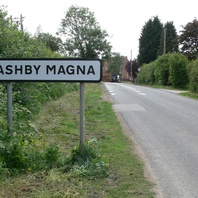
Viking Names
Ashby Magna
Ashby Magna, in the Guthlaxton Hundred of Leicestershire, is likely an Anglo-Scandinavian name coming from Old English æsc ‘ash-tree’ and Old Norse by ‘a farmstead, a village’. Some spellings may show influence of Old Norse eski ‘a place growing with ash-trees’ or even Old English esce ‘a stand of ash-trees’ on the first element. Ashby is a common place-name, but is is uncertain whether this name is an Old English creation Scandinavianized (i.e replacing Old English tun ‘an enclosure; a farmstead; a village; an estate’ with Old Norse by) or whether the name is fully Scandinavian in origin, with Old English æsc (Middle English ash) replacing Old Norse askr ‘ash-tree’. The affix Medieval Latin magna ‘great’ differentiates the township from Ashby Parva, which lies approximately three miles to the south-west.
Read More
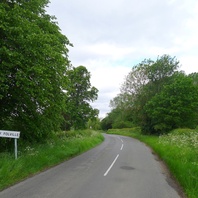
Viking Names
Ashby Folville
Ashby Folville, in the East Goscote Hundred of Leicestershire, is likely an Anglo-Scandinavian name coming from Old English æsc ‘ash-tree’ and Old Norse by ‘a farmstead, a village’. Some spellings may show influence of Old Norse eski ‘a place growing with ash-trees’ or even Old English esce ‘a stand of ash-trees’ on the first element. The suffix Folville comes from the de Folevill family who held the manor from the mid twelfth century until at least 1368.
Read More
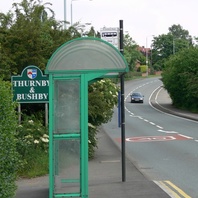
Viking Names
Thurnby
Thurnby, in the Gartree Hundred of Leicestershire, probably derives from Old Norse þyrne, þyrnir, þyrni ‘a thorn-bush’ and Old Norse by ‘a farmstead, a village’. It is also possible that the specific element is the Old Norse byname Þyrnir. However, when taken with the neighbouring parish Bushby these names appear to record an area of former scrubland. This land remained poorly exploited until the period of Scandinavian settlement. Some earlier spellings of the name show substitution of Old English þorn ‘a thorn-tree’ as the first element. Thurnby is now a joint parish with Bushby.
Read More
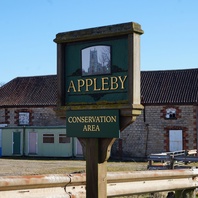
Viking Names
Appleby
Appleby, in the Manley Wapentake of Lincolnshire, is a hybrid name coming from Anglian æppel ‘an apple; fruit, tree-fruit; an apple-tree’ and Old Norse by ‘a farmstead, a village’. It is likely, from the situation of the village that this was formerly Appleton, in which the second element, originally Old English tun ‘a farmstead, village, estate’, was later replaced by by.
Read More
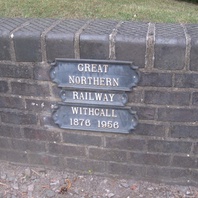
Viking Names
Withcall
Withcall, in the Louth Eske Wapentake of Lincolnshire, is a Scandinavian compound from Old Norse viðr ‘a wood; or a tree, a tree-trunk’ and Old Norse kjǫlr ‘a keel, a ridge (of hills)’, which is topographically appropriate.
Read More
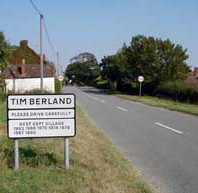
Viking Names
Timberland
Timberland, in the Langoe Wapentake of Lincolnshire, is likely an Anglo-Scandinavian hybrid coming from Old English timber ‘timber, trees; a wooden building’ and Old Norse lundr ‘a small wood’, thus giving the place-name the meaning ‘the grove where timber is obtained’. Alternatively, the first element may be Old Norse timbr ‘timber, trees, wood’.
Read More
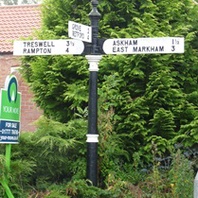
Viking Names
Askham
Askham, in the Bassetlaw Wapentake of Nottinghamshire, probably goes back to an original Old English æschām ‘ash tree farm,’ but the Old Norse cognate askr was substituted at an early date.
Read More
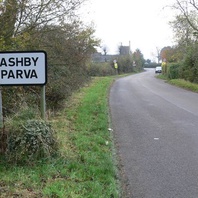
Viking Names
Ashby Parva
Ashby Parva, in the Guthlaxton Hundred of Leicestershire, is an Anglo-Scandinavian hybrid from Old English æsc ‘ash-tree’ and Old Norse by ‘a farmstead, a village’. There may have also been possible influence on the first element from Old Norse eski ‘a place growing with ash-tree’ or Old English esce ‘a stand of ash-trees’. Affixes such as the Medieval Latin parva ‘small’ and Middle English litel ‘little’ were variously added to different forms of the name to avoid confusion with nearby Ashby Magna.
